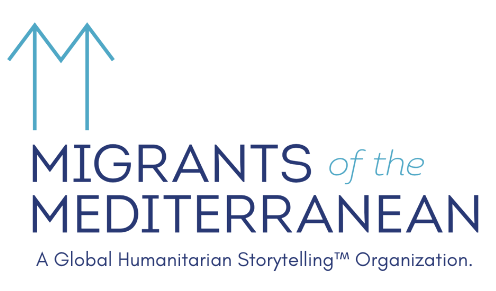Meet Ousman
Ousman, days after his rescue on the Mediterranean Sea. Lampedusa, Italy; April 2017. ©Pamela Kerpius/Migrants of the Mediterranean
by
Pamela Kerpius
Recorded:
28 April 2017
Published:
2017
Meet Ousman.
19 years old and from Serekunda, Gambia.
To reach Lampedusa he crossed eight countries: The Gambia, Senegal, Guinea-Bissau, Mauritania, Mali, Burkina Faso, Niger, and the most dangerous of all, Libya.
In total his journey took over three years, and it is unique for having zig-zagged across the western region before he was finally funneled along the established trafficking route from Niger to Libya and the sea.
Ousman’s first stopping point was Guinea-Bissau where he works for two years and 6 months chopping trees in a forest for fire wood. Seeking a new work opportunity, he left Guinea-Bissau and arrived in Mauritania. (This would have required him to cross back through Senegal and possibly The Gambia again, if he took the most direct route, but it may have differed from this.)
He stayed in Mauritania for four months working, then left in search of more work. He spent two days in Bamako, Mali and two days traveling through Burkina Faso.
He stopped in the capital of Niger, Niamey, then went on, like most others, to Agadez. He stayed in Agadez for two weeks.
He crossed the Sahara desert in the back of a pickup truck with 28 people, a trip that took four days. He had five liters of water. He saw skeletons of the dead and dead bodies. He was afraid. In spite of the immense heat during the day, he was cold when night would fall.
He arrived in Baye*, Libya for one night, then went on to Gadro*, where he remained for nine months, working. He says he was not safe in this city. His pay rate would vary depending on what his employer decided to spend each day; it varied from five to 15 dinars, or nothing at all.
He left Gadro, stayed in Delgar* for two days, until he arrived in Sabha. He traveled in a covered car to get there, so no one would be able to see him. In his compound in Sabha there were over 100 people.
He transferred once again in another covered car to an unknown city, where he stayed for three days. Traveling in the car was not easy, since more than 60 people were cramped inside––stacked on top of each other, in fact.
There were many transfer points for Ousman within Libya, and he estimates he made about 12. At each transfer a new driver would be paid for taking the migrants, meaning, a group of humans are sold to a new trafficker for each subsequent leg of a journey.
“There are too many people
in the boat….
Everybody is crying.”
Ousman arrived in Ain Zara**, a neighborhood in the southeast of Tripoli proper. He was locked in a compound there for four days where friends inside paid for his food and water, lest he starve or dehydrate; you only receive food in the compound if you can pay for it, and by this point Ousman had none.
He transferred to Sabrathalin***, a coastal camp, where he remained for three weeks. It was not safe. There were gunmen everywhere. He said the number of people inhabiting the camp was “uncountable,” but estimated it was more than 5,000. There was little food available and only unclean well water to drink.
Ousman crossed the Mediterranean Sea in a rubber dinghy with 168 people, including 30 women, two of whom were pregnant, and six children.
I asked him to describe the scene: “It’s not easy. People are crying. There are too many people in the boat, so people are standing, and water keeps entering the boat….Everybody is crying.”
He was out at sea for 10 hours before he was picked up by the Guardia Costiera and taken to Lampedusa, arriving 6:00am Easter Sunday, April 16, 2017.
Ousman is an amazing human being.
* City name and spelling not verified.
** The notorious Ain Zara Prison is located here, where huge numbers of arbitrary detentions are recorded; these prisoners are former sympathizers of Muammar el-Qaddafi, his agents, or suspected agents, and while few have received trial, many are regularly tortured and abused, often in similar style as captured migrants in unofficial detention centers or in Libyan prison. This, for further acknowledgment of the breadth of human rights violations occurring across Libya.
*** This city name and spelling is also not verified. I asked if he meant the coastal camp of Sabratha, where every migrant I’ve met until this point has stopped to pick up the boat, but he and his friends insisted it was a different place established as a new, alternative connection point. I have been unable to locate it on a map.

